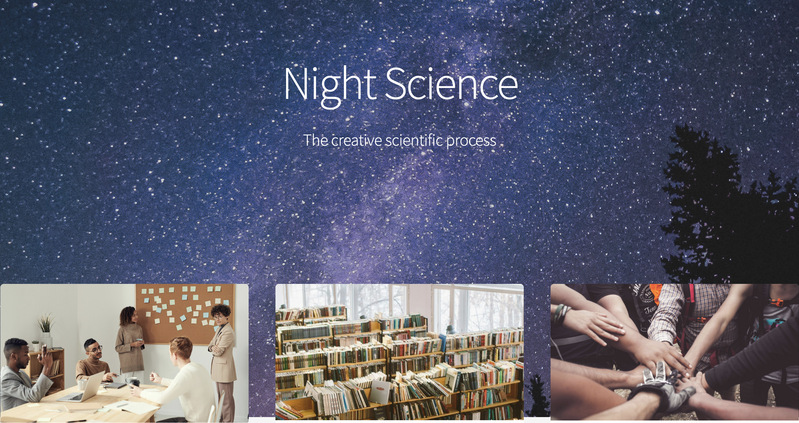Science 22 Aug 2024 Vol 385, Issue 6711, DOI: 10.1126/science.adr4539
In 2023, creativity became the second-most in-demand skill, after analytical thinking (创造力继逻辑推理能力,成为人才考核的第二大衡量指标), across industries (1), reflecting the increasingly complex challenges faced by organizations and individuals. The teaching of creativity has been integrated into higher education in the arts (2), business (3), and engineering (4). Creativity should also be taught in basic science programs.
Science graduate programs aspire to equip students with the knowledge, perspective, judgment, and tools required for research (研究生教育的目的就是要培养学生拥有独立展开科研的能力). Those tools should include not only hypothesis testing, the common focus of training, but also the process of creative discovery that precedes it (科研能力的训练不仅包括'实战演习',还有实战前的战略战术讨论——即创造性独立思考能力的培养). Creativity can be taught, nurtured, and encouraged (5). (很重要的一点:创造力其实是可以被培养的)。
Teachable strategies for enhancing creativity include being open to new ideas and experiences, identifying novel questions,generating many diverse ideas, using analogies and metaphors, looking for connections across subfields and disciplines, embracing contradictions and outliers, and understanding one's own creative strengths and weaknesses (6, 7)培养创造力的方法,比如在科研征程上的各种奇思妙想。

【补充:作者在 Genome Biology 还发了一些列文章,讲述了Night Science,用于讨论科学背后的故事:The public is familiar with the well-organized “day science” image of bench-working scientists, but they rarely know the true stories and creativity behind published tested hypotheses. Itai Yanai and Martin Lercher discuss the exciting and significant parts of scientific research that occur behind the scenes, called “night science”】
Demystifying the scientific creative process can make science more equitable and accessible (8). Researchers who understand the full scientific process, including its creative side, are more likely to have confidence in their self-efficacy for research and their identity as a scientist (9) (科研工作者只有自己看清整条科研之路时,才能更好融入科研,才能更好的培养新一代接班人). As a result, such researchers are likely to have greater work satisfaction and a better chance of remaining in science long term than those who are not trained in creativity (9). Access to the space, time, and tools for creativity can also motivate early career scientists to select topics and problems that are especially meaningful to them (10). More broadly, teaching creativity in science presents a complete and honest trajectory of the research process, including its inherent distressing elements (11).
Harvard Medical School, New York University, Princeton University, Stanford University, Rockefeller University, and the National Cancer Institute, as well as the European Molecular Biology Organization (EMBO) and Heinrich Heine University Düsseldorf, have begun to integrate creativity into their curricula and could serve as models for others (12). Honing science training to address the complexity of modern challenges will improve the accessibility, effectiveness, and quality of science.
References
1 World Economic Forum, “Future of jobs report 2023” (World Economic Forum, 2023); https://www3.weforum.org/docs/WEF_Future_of_Jobs_2023.pdf.
2 O. G. Ocvirk et al., Art Fundamentals: Theory and Practice (McGraw-Hill, 2001).
3 T. Seelig, in Genius: A Crash Course on Creativity (Harper Collins, 2012).
4 K. Roethel, “Stanford's design school promotes creativity” (SFGATE, 2010); https://www.sfgate.com/education/article/Stanford-s-design-school-promotes-creativity-3244664.php.
5 G. J. Feist, Cambridge Handbooks in Psychology: The Cambridge Handbook of Creativity and Personality Research (Cambridge Univ. Press, 2017).
6 R. Reiter-Palmon, E. J. Robinson, Psychol. Aesthet. Creat. Arts3, 43 (2009).
7 Night Science Collection; https://www.biomedcentral.com/collections/night-science.
8 I. Yanai, M. Lercher, Night Science Podcast; https://www.buzzsprout.com/1744020.
9 National Academy of Sciences, National Academy of Engineering, and Institute of Medicine Committee on Science, Engineering, and Public Policy, On Being a Scientist: A Guide to Responsible Conduct in Research: Third Edition (National Academies Press, 2009).
10 T. S. Mullaney, C. Rea, Where Research Begins: Choosing a Research Project That Matters to You (and the World) (Univ. of Chicago Press, 2022).
11 D. D. Sapp, J. Creat. Behav.26, 21 (1992).
12 Night Science; www.night-science.org.
